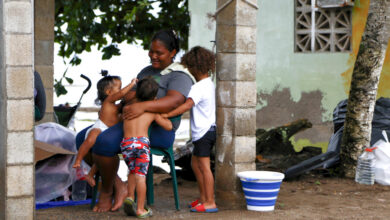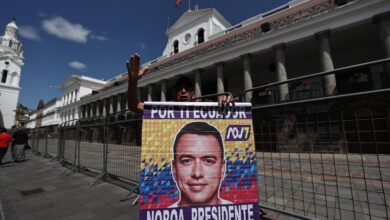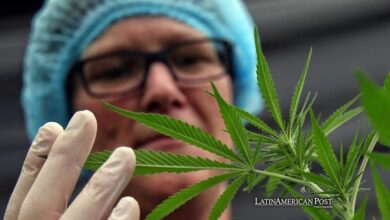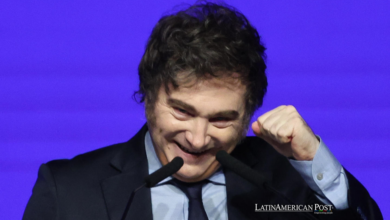Panama’s Martinelli Defies Legal Odds, Eyes Presidential Run Amid Conviction
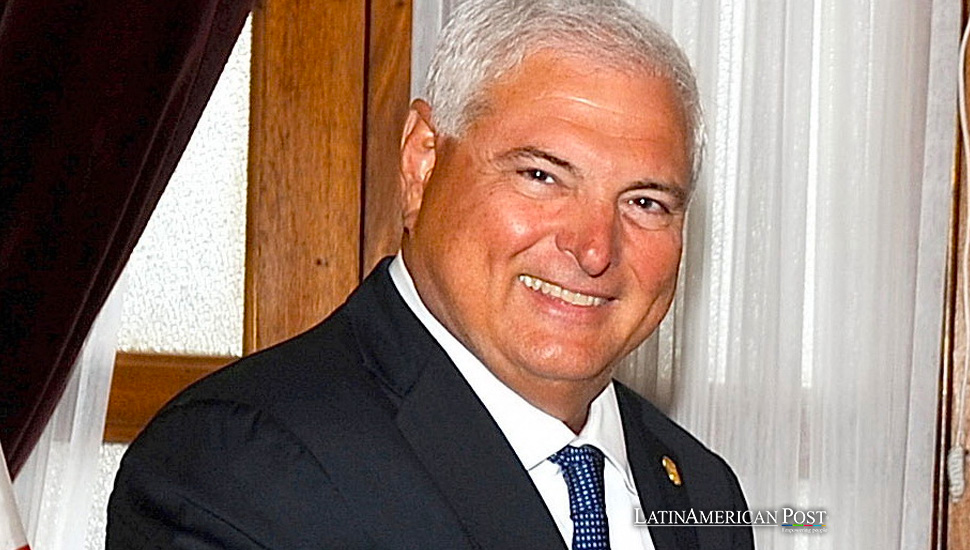
Despite a recent conviction for money laundering, former Panamanian President Ricardo Martinelli has declared his candidacy for the upcoming presidential election, igniting a contentious debate on eligibility and stirring fervent support among his followers.
Defiant Return: Martinelli’s Presidential Bid Amidst Legal Turmoil
In a bold move that has stirred the political landscape of Panama, former President Ricardo Martinelli, convicted of money laundering, has announced his intention to run in the nation’s forthcoming presidential election. This declaration came during a vibrant rally in Panama City, where Martinelli was officially presented as the candidate of the Realizing Goals Party. Amidst a sea of blue and white flags, supporters chanted in solidarity, ready to back Martinelli in his confrontation with Panamanian authorities.
Martinelli’s announcement is a statement of political ambition and a direct challenge to the legal and political constraints that might bar him from seeking office. Addressing his supporters, Martinelli proclaimed his innocence and framed his legal troubles as persecution by authorities, positioning himself as a defender of the Panamanian people against corruption and despair. “The only crime I have committed is to defend the people of Panama, to defend our country from those who want to steal hope,” he asserted.
From President to Convict: Martinelli’s Controversial Legacy
Serving as Panama’s president from 2009 to 2014, Martinelli was known for his conservative stance and significant investments in infrastructure projects. However, his political legacy has been tarnished by a conviction in July for laundering money through the acquisition of a media company, a move prosecutors claim was facilitated by undeclared funds from government-contracted companies. Martinelli counters these accusations by stating that the purchase was made with his own money, an assertion complicated by his ongoing freedom pending an appeal—a hope dashed when Panama’s Supreme Court upheld his conviction just a day before his rally.
Under Panama’s constitution, anyone convicted of a crime with a sentence of five or more years is ineligible to run for office, placing Martinelli’s candidacy in legal jeopardy. The electoral tribunal of Panama now faces the complex task of determining his eligibility, a decision that could reshape the political landscape of the upcoming election. Despite his legal entanglements, Martinelli remains a formidable figure in Panamanian politics, leading recent polls with a significant margin over his nearest rival, Martin Torrijos.
International Consequences: A Ban by the U.S. Government
Martinelli’s political journey is marred by numerous corruption allegations post his tenure as president, culminating in a ban by the U.S. government last year, prohibiting him and his immediate family from entering the country due to his involvement in “significant” corruption.
The former president’s defiant entry into the presidential race has ignited a firestorm of controversy, raising critical questions about the integrity of Panama’s electoral process and the broader implications for democracy in the region. Supporters see Martinelli as a champion of the people, unfairly targeted by a political system afraid of his popularity and potential return to power. In contrast, critics view his candidacy as a stark challenge to the rule of law and a dangerous precedent for allowing convicted individuals access to political office.
As Panama gears up for its elections on May 5, the nation finds itself at a crossroads, with Martinelli’s candidacy testing the boundaries of legal and electoral norms. The electoral tribunal’s impending decision on his eligibility will not only determine Martinelli’s political fate but also signal the strength of Panama’s democratic institutions in the face of legal and ethical dilemmas.
Democracy, Justice, and Political Power: A Complex Interplay
This unfolding saga in Panama’s political arena underscores the complex interplay between justice, democracy, and political power. Martinelli’s attempt to reclaim the presidency amidst significant legal challenges embodies the tensions that emerge when the aspirations of individual political actors collide with the principles that underpin democratic governance.
Also read: Mexico’s President Refutes Allegations of Cartel Funding in 2006 Campaign
As the story of Martinelli’s political comeback attempt unfolds, Panama and the world watch closely, waiting to see how one of the country’s most controversial figures will navigate the tumultuous waters of politics, law, and public opinion. The outcome of this saga will not only shape the future of Panama’s leadership but also offer insights into the resilience of democratic norms in the face of political ambition and legal controversy.

